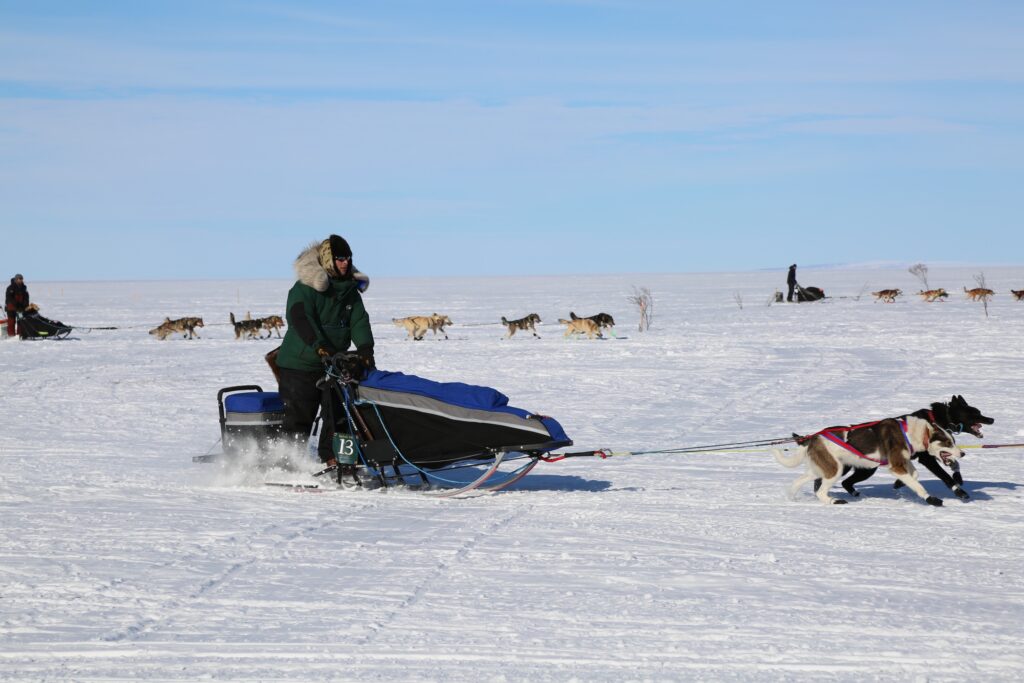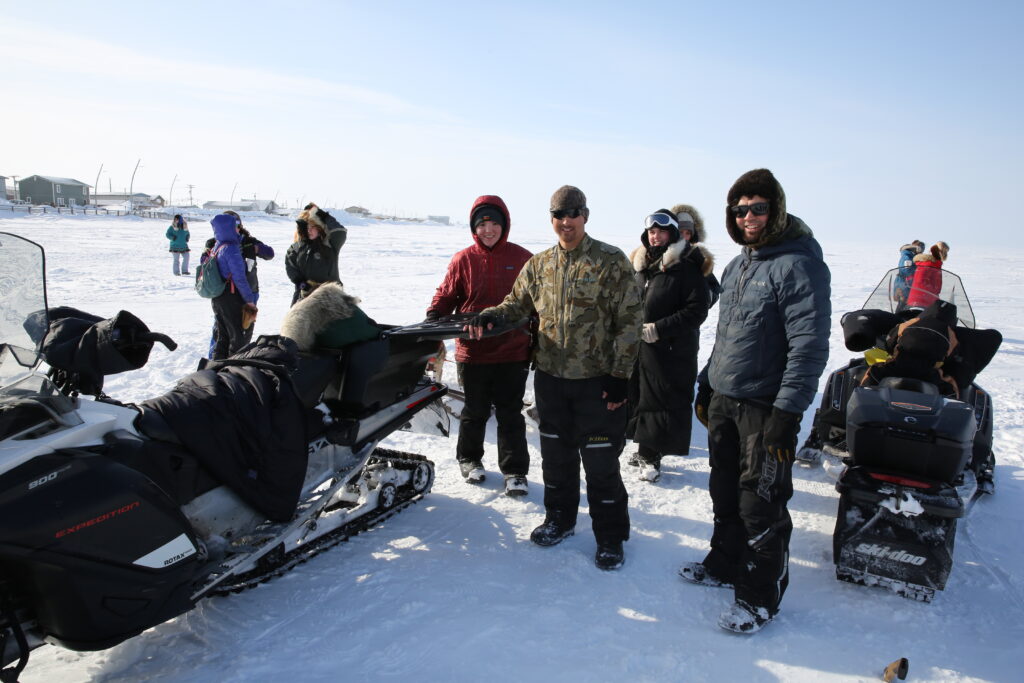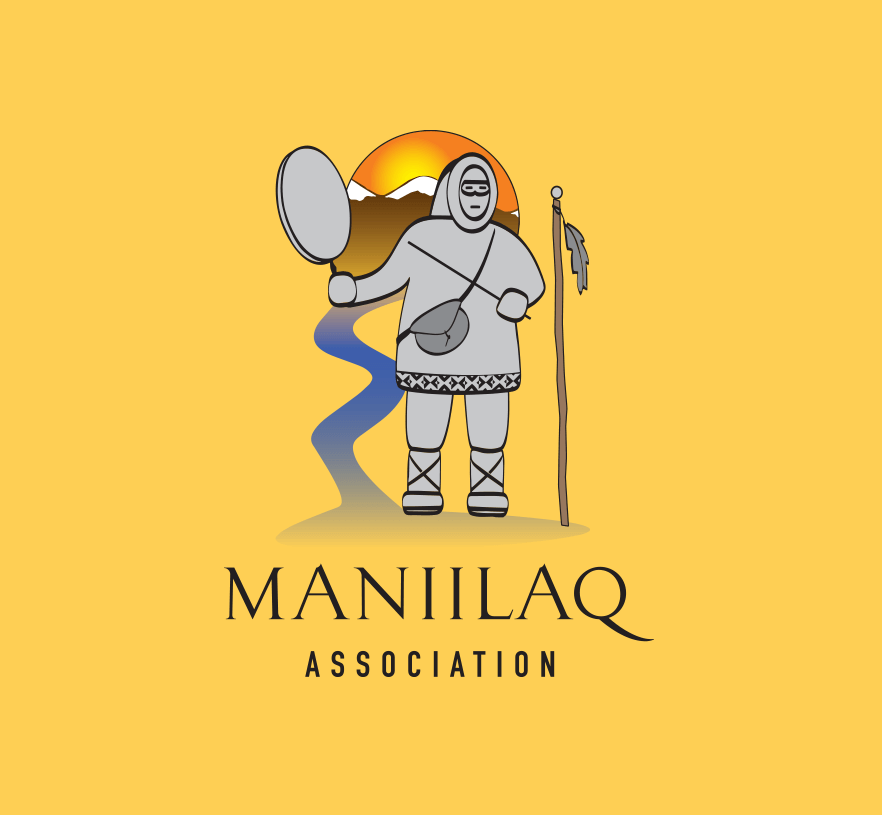— Kevin Hansen, DPTOur traditional Iñupiat values and activities give us a way to live naturally and provide a sense of purpose in everyday life. By living in this way, we have an enhanced quality of life and are less likely to seek or engage in substance misuse. Many cultural activities are physically demanding and is a great form of functional exercise for our people. Exercise releases endorphins and plays a role in regulating hormones, which has been shown to make us feel better, and decrease the feelings of pain. Engaging in traditional activities and living by our Inupiat values can help decrease stress, improve mood, boost energy, promote better sleep, control weight, and combat health conditions and diseases. If we are naturally able to address injury, pain and other symptoms, we are less likely to participate in substance misuse.
Congratulations to Maniilaq-sponsored musher and Maniilaq Health Center physical therapist Kevin Hansen for a 7th place finish in the 2024 Kobuk 440! Our Public Communications Department connected with Kevin for a Q&A about himself, his work outside of mushing, living a healthy lifestyle, and engaging in traditional activities.
What is your job title?
Doctor of Physical Therapy.
How long have you worked for Maniilaq?
Over three years.
Favorite part about your job?
Working with the people of the Northwest Arctic Region. It has always been a goal of mine to serve the people of my home region. As an Iñupiaq Physical Therapist, I understand and relate to the high population of the Iñupiat patients that I see, which helps me formulate an appropriate treatment plan to meet my patients’ goals. It is rewarding to see patients from across the region improve their quality of life through physical therapy services.
What are your job duties?
My job duties include providing Physical Therapy services to Outpatient, Inpatient, and Long-Term Care departments. I perform an examination and evaluation and develop a plan of care that is tailored to meet my patients’ goals. Treatment plans are developed to improve functional mobility and strength, reduce or manage pain, and to prevent disability. Examination/evaluation and treatment is all based off evidence-based practice. I’m a member of the American Physical Therapy Association which describes Physical therapists as movement experts that strive to improve patient’s quality of life through prescribed exercise, hands-on care, and patient education.
What are some activities you do, as a physical therapist, to live a healthy lifestyle?
I have been spending much of my time training sled dogs for local sled dog races. I really enjoy being able to engage in healthy cultural activities such as dog mushing, camping, trapping, and hunting. I enjoy eating subsistence foods, which are as organic as it gets and nourishing for our bodies. I believe that it is important, living in this region, to find outdoor activities that can be enjoyed while embracing the uniqueness and beauty of the Northwest Arctic Region. When not performing outdoor activities, it is also important to engage in a more formal strength and endurance exercise routine. I believe that having goals that align with living a healthy lifestyle and getting regular exercise through outdoor activity or a more established exercise routine is important for health and happiness. Small and simple daily goals are important and are what lead to accomplishing larger goals. Small daily activities can include a 30-minute walk, bike ride, picking berries or hauling and chopping wood.

With the risk of prescription medication misuse, what role might physical therapy play in prevention?
Physical Therapy provides a natural self-driven treatment option to help reduce or manage pain. Pain medication is only intended to be used short-term, for high acute pain. This is because long-term use of pain medication has many side effects and changes the body’s neurological and psychological systems. Pain medication can become addictive and cause withdrawal symptoms similar to other drugs that are not healthy for our bodies. Chronic pain and long term use of pain medication causes our neurological system to become more sensitive which means that we start to feel and have pain more easily than before. Physical Therapy provides treatment to desensitize the neurological system and improve functional strength and mobility. Our bodies are excellent at adapting to the stressors we put on it and through exercise and education; we can rebuild our bodies to respond to movement/activity more naturally without pain or with less pain. Exercise has been proven to have many benefits, and prescribed exercise programs through PT gives individuals the responsibility to perform independently which is rewarding for patients to reach their goals through their own hard work. All of these techniques help decrease prescription medication misuse.
In your view, how do traditional values and activities play a role in preventing substance misuse and living a healthy lifestyle overall?
Our traditional Iñupiat values and activities give us a way to live naturally and provide a sense of purpose in everyday life. By living in this way, we have an enhanced quality of life and are less likely to seek or engage in substance misuse. Many cultural activities are physically demanding and is a great form of functional exercise for our people. Exercise releases endorphins and plays a role in regulating hormones, which has been shown to make us feel better, and decrease the feelings of pain. Engaging in traditional activities and living by our Inupiat values can help decrease stress, improve mood, boost energy, promote better sleep, control weight, and combat health conditions and diseases. If we are naturally able to address injury, pain and other symptoms, we are less likely to participate in substance misuse.


